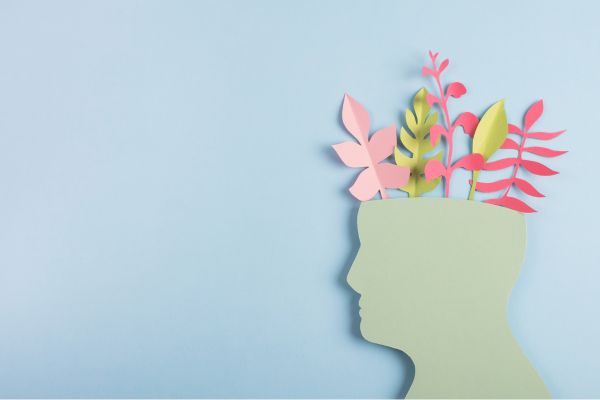Overcoming addiction is a highly individualized and comprehensive process that affects every part of a person’s life, particularly their mental health. Mental well-being is crucial for achieving lasting recovery, as it offers the emotional strength and clarity necessary to face challenges and pursue a rewarding life without relying on substances.
The Connection Between Mental Health and Addiction Recovery
There is a significant and often complex relationship between mental health and addiction. Many individuals in recovery encounter co-occurring disorders, where addiction is paired with mental health issues like depression, anxiety, or PTSD. These mental conditions often coexist with substance abuse, creating a cycle where each issue exacerbates the other.
If mental health problems are left unaddressed, they can significantly hinder recovery efforts. Emotional distress, unresolved trauma, or unmanaged stress can contribute to a relapse if not dealt with. Focusing on mental health equips individuals with the necessary tools and support to escape this cycle, paving the way for a sustainable, substance-free future.
The Influence of Mental Health on the Recovery Process
Mental health has a substantial impact on every phase of recovery, affecting how individuals tackle obstacles, form relationships, and maintain sobriety. A solid mental health base provides individuals with the capabilities needed to handle emotional triggers, encourage personal development, and establish meaningful changes.
Emotional Resilience During Early Recovery
The initial phases of recovery can often feel the most precarious. The ability to adapt to stress and setbacks, known as emotional resilience, is vital for managing triggers and steering clear of relapse. For many, substances have been a way to cope with emotional distress.
Recovery entails acknowledging these underlying emotions and discovering healthier coping methods. Therapeutic approaches and mindfulness techniques can aid individuals in fostering emotional stability, creating a sense of control and awareness that is crucial during the early stages of recovery.
Cultivating Healthy Relationships
Mental health is essential for forming healthy, supportive connections. Addiction often strains or harms personal relationships, leading to mistrust and feelings of isolation. Addressing mental health issues can enhance communication skills, rebuild trust, and equip individuals with the emotional tools needed to mend their relationships. Therapy can offer a secure environment to delve into past traumas, comprehend behavioral tendencies, and strengthen bonds with loved ones.
Maintaining Long-Term Sobriety
Recovery is not only about steering clear of substances; it is about crafting a meaningful and fulfilling life. Mental health serves as the cornerstone for personal development, allowing individuals to critically reflect on their experiences, establish significant goals, and cultivate healthy coping mechanisms. Techniques such as mindfulness, journaling, and self-reflection strengthen the connection to oneself, which is essential for long-lasting sobriety.
Advantages of Focusing on Mental Health During Recovery
Emphasizing mental health provides a multitude of benefits that go beyond mere sobriety, enhancing the overall quality of life. Here are some of the positive impacts:
- Better Decision-Making: Clear thinking enables wiser choices, allowing individuals to face challenges without reverting to past habits.
- Enhanced Problem-Solving Abilities: Managing emotions facilitates thoughtful reactions to stress instead of impulsive actions.
- Increased Sense of Purpose: Stronger mental health boosts self-esteem and provides a clearer picture of personal aspirations.
- Lowered Risk of Relapse: Handling mental health effectively reduces emotional triggers that may lead to substance use.
- Overall Well-Being: Balanced mental health supports physical wellness, emotional steadiness, and meaningful relationships.
Approaches to Bolster Mental Health During Recovery
Nurturing mental health throughout recovery requires deliberate efforts and access to suitable resources. Creating a tailored plan to promote emotional well-being can help individuals manage challenges, lower the risk of relapse, and develop a life free from substances.
Therapy and Counseling
Professional therapy provides a structured, secure environment for addressing the mental health issues that may surface during recovery. These sessions allow individuals to investigate the underlying causes of addiction, identify emotional triggers, and formulate practical strategies for handling stress and preventing relapse.
- Cognitive Behavioral Therapy (CBT): CBT emphasizes identifying and altering negative thought patterns that can result in destructive behaviors. This evidence-based technique empowers individuals to tackle triggers with healthier coping strategies.
- Dialectical Behavior Therapy (DBT): DBT is especially beneficial for those struggling with strong emotions or past trauma, focusing on mindfulness, emotional control, and effective interpersonal skills—all essential during recovery.
- Group Therapy: Joining group sessions promotes community feeling, offering shared experiences and mutual encouragement. Listening to others’ experiences often inspires hope and decreases isolation.
Establishing a Support Network
Recovery is not a solitary path. Being surrounded by a supportive circle of family, friends, and peers can significantly affect the journey.
- Connect with Loved Ones: Open communication and shared activities help rebuild trust, fostering security.
- Participate in Support Groups: Support groups like Alcoholics Anonymous or Narcotics Anonymous provide shared experiences and practical advice for navigating life’s challenges.
Adopting Healthy Lifestyle Choices
The connection between physical and mental health is strong. Integrating healthy habits into everyday routines enhances emotional well-being and aids in recovery.
- Nutrition: A diet abundant in nutrients stabilizes mood and increases energy levels.
- Regular Exercise: Engaging in physical activity alleviates stress, improves sleep, and releases endorphins, boosting mood.
- Mindfulness Techniques: Methods such as meditation or yoga can calm the mind and foster a sense of inner tranquility.
Accessing Professional Resources
At times, mental health challenges require professional guidance. Seeking psychiatric care for medication management or consulting specialized therapists can be incredibly beneficial for those with more severe symptoms. Resources like findrecovery.com can connect individuals to mental health counselors, addiction specialists, and other supportive services tailored to their specific needs.
Moving Toward a Sober Life
The journey of recovery is one of transformation, with mental health playing a crucial role in achieving and preserving sobriety. By prioritizing emotional wellness, individuals find the strength to face obstacles, enhance their relationships, and build a life filled with purpose and satisfaction.


